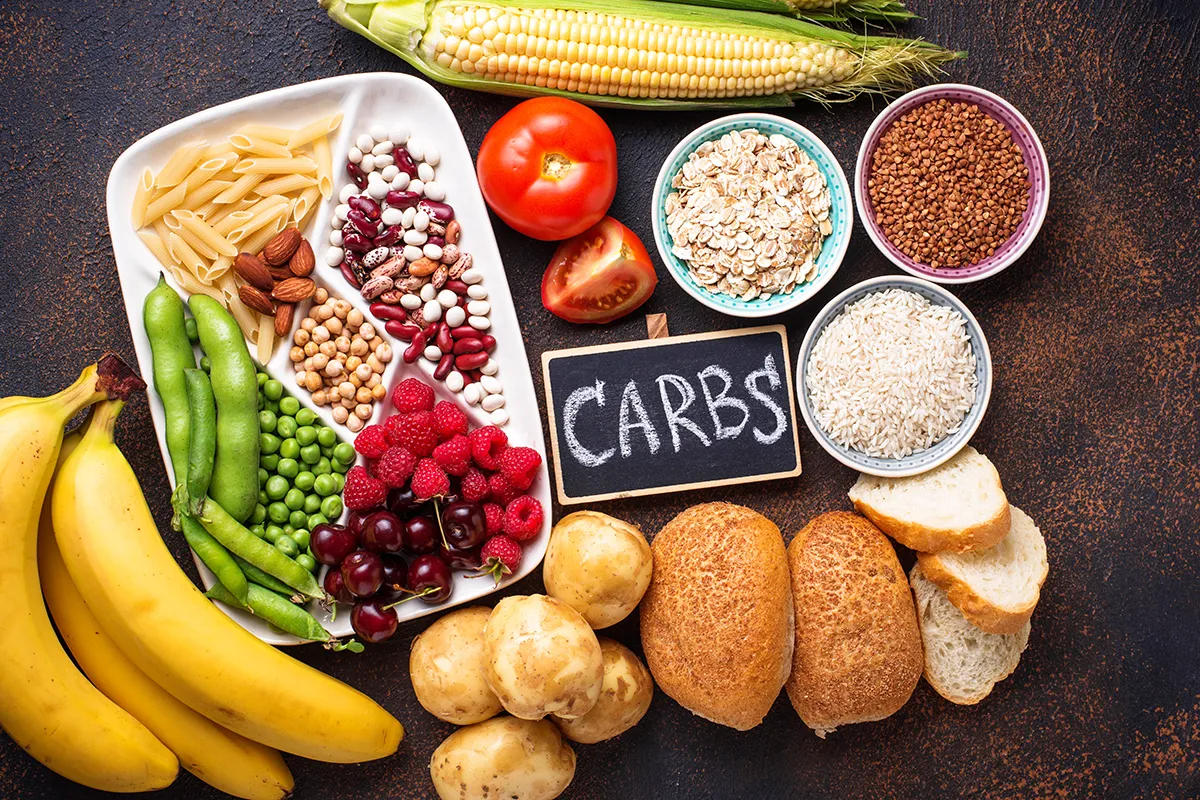
Carbohydrates get a bad rap, however, not all carbohydrates are bad.
Carbohydrates are usually broken up into two categories: Simple carbohydrates and complex carbohydrates.
Simple carbohydrates are made up of shorter chains of sugar molecules. They can be monosaccharides (glucose, fructose, and galactose) or disaccharides (sucrose, lactose, and maltose). They are the simplest form of carbohydrates and are broken down quickly in the body for energy. Items that contain simple carbs include fruit, milk/milk products, soda, pastries, candies, ice cream, and anything made with refined sugars.
Complex carbohydrates are made up of many chains of sugar making them polysaccharides. Polysaccharides are starches, fiber, and glycogen. Starches are the storage form of carbohydrates in plants. Glycogen is the storage for of carbohydrates in animals and humans. Our bodies will break down glycogen for energy if we are not consuming enough energy to maintain bodily function. Finally, fiber is an indigestible carbohydrate found in plant that will aid in digestion. Foods that contain these complex carbohydrates include vegetables, fruits, beans/legumes, nuts/seeds, and grains.
Before our body can use either simple or complex carbohydrates, they must first be broken down into their simplest form… glucose, fructose, or galactose. The body will absorb these simple sugars in the small intestine to be used for energy or stored as glycogen for later energy.
The truth is grouping carbohydrates into simple verses complex carbohydrates doesn’t always help us make healthy decisions. Fruit and dairy have simple carbohydrates; they also contain fiber, vitamins and minerals making them nutritionally complex. Soda also contains simple carbohydrates, but no other nutritional value.
Instead of just categorizing carbs as simple or complex, it’s more helpful to differentiate between natural and processed carbohydrates. By shifting the conversation to natural versus processed, we can make more informed dietary choices that benefit our health in the long run.
Carbohydrates, when chosen wisely, can be an important part of a balanced diet!